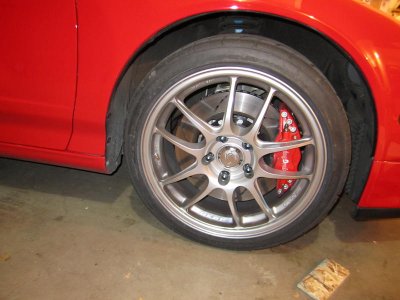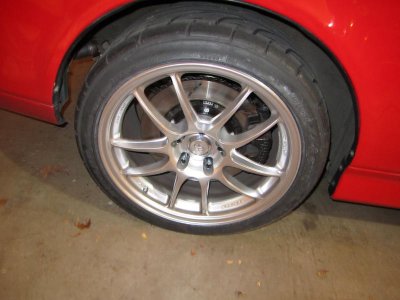FXMD ran the RB upgraded calipers and 2pc rotors on their silver Modified-class championship car ~4 years ago.You are the FIRST person I read about who upgraded the brakes using the RacingBrake calipers as well as their rotors.
Would very much like to see some pictures of your setup.
Also, what wheels are you running and what offsets?
In your case, you upgraded BOTH the calipers and the rotors. I just upgraded the rotors (324mm in front, stock 97 size in the rear) and pads (Hawk HP+ or HPS) and found that just those upgraded already made a night-and-day difference.
0.02









